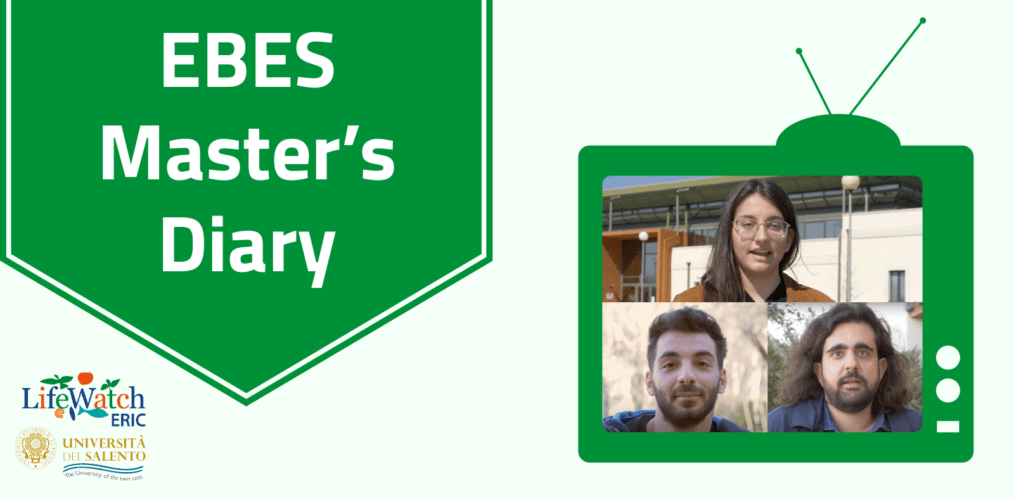
In the Spring Term of 2022, LifeWatch ERIC will be funding a three-month internship abroad for three students, Martina, Marco and Ludovico, of the e-Biodiversity and Ecosystem Sciences Master’s degree (EBES) at the University of Salento, which is supported by LifeWatch ERIC.
Thanks to this dedicated LifeWatch ERIC internship programme, the students will be going to the Ionian University in Corfu, where they will be given the chance to apply the skills they have developed during their studies, carrying out research for their dissertations and gaining experience in the university labs. Individually, Martina, Marco and Ludovico will be focusing on using text mining to extract information on spatial and ecological traits of freshwater fishes, using a modelling approach to investigate the reasons a species population stays heterogenous, and building user-friendly citizen science applications with the aim of monitoring natural ecosystems. You can follow all three of the students’ journeys throughout their experience in Corfu by watching their Master’s Diary, which they will be updating periodically – subscribe to our YouTube channel to ensure you never miss an update!
The EBES Master’s Degree e-Biodiversity and Ecosystem Sciences (EBES) is the newest curriculum available within the Master of Coastal and Marine Biodiversity and Ecology degree, designed to provide trans-disciplinary knowledge and skill sets for a new generation of ecologists proficient in data science, modelling and eco-informatics. It is a two-year programme at the University of Salento, entirely taught in English, allowing students to gain highly specialised instruction on biological and ecological sciences,ecological modelling and ecological informatics technologies. The course was created as current global challenges call for a deeper understanding of ecological phenomena at various levels of scale, to identify patterns and underlying mechanisms of biodiversity organisation and ecosystem functioning, and design scenarios of future change.
For more information about the EBES Master’s Degree, please see the dedicated webpage of the University of Salento, or download the PDF here.